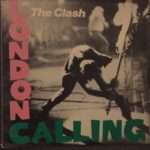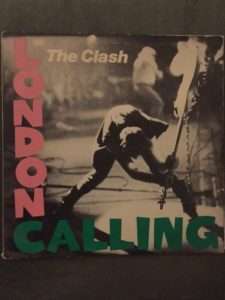Revolutionary music
The BBC 4 programme surveyed legends of guitar music. Bo Diddley featured strongly. Of course, the name was familiar, although I would have been hard-pressed to have named any of his songs. Bo Diddley, it seemed, was causing ripples across the United States when Elvis Presley was a small provincial artist. Bo Diddley with elemental rhythms and profoundly sensuous performances was the face of rock and roll that was disturbing conservative America.
Bo Diddley was part of an international revolution that lasted a quarter of a century. From the mid-1950s until the late-1970s, in Britain, music shaped the society in which it was played. From the teddy-boys, through the mods and the rockers and the hippies, to the punks, music defined the youth culture to which it was played.
Then it stopped.
Not since the days when Johnny Rotten snarled the words of Anarchy in the UK has there been a musical movement that has had the capacity to disturb the established order.
Perhaps the 1980s caused music to stall. The music was unmemorable and the rise of neo-liberalism on both sides of the Atlantic meant individualism and consumerism became the dominant mindset. There was no place for mass social movements when the preoccupation was with oneself. When Margaret Thatcher declared there was no such thing as society in 1989, it was a recognition of the effects of a decade of neo-liberal policies.
By the 1990s, broadcasting had become fragmented. Musicians who might have been seen by millions on a television programme in the 1970s found audiences for satellite channels were a fraction of those that would have been enjoyed by their predecessors on mainstream channels. The capacity to be a revolutionary is greatly diminished when the only listeners are those who are listening because they already know who you are. Away from the mainstream, in the world of narrowcasting, even being outrageous is hardly going to disturb anyone because they are never going to hear what you have sung or said.
Three generations on from the time of Bo Diddley, the Internet and digital technology allow the capacity to be infinitely revolutionary, to simultaneously reach an audience around the world. It doesn’t happen.
It is more than forty years since the punks caused shock to the readers of the Daily Mail. They seem likely to go down in history as the last youth sub-culture that had the power to be disturbing. At the time, there were three television channels in Britain. Short of the Internet being reduced to three websites, there will be no more revolutionaries.



Comments
Revolutionary music — No Comments
HTML tags allowed in your comment: <a href="" title=""> <abbr title=""> <acronym title=""> <b> <blockquote cite=""> <cite> <code> <del datetime=""> <em> <i> <q cite=""> <s> <strike> <strong>